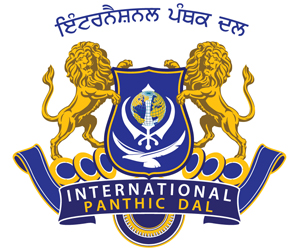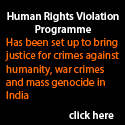Anna Hazare and Baba Ramdev’s fasting grabbed attention of the entire world. But did you know there is one lady from an Indian North Eastern state Manipur who is fighting for the rights of North Eastern people for more than a decade and she has been on hunger strike since the year 2000. Having refused food and water for more than 500 weeks, Irom Sharmila Chanu has been called “the world’s longest hunger striker”.
But Indian government is doing nothing to save her from this situation. Human rights activists dedicate their whole life in helping other people. But they themselves remain one of the most vulnerable sections of society, especially in developing countries like India. In an effort to protect these activists, World Sikh Organization (WSO) in association with Human Rights Law Network (HRLN) has opened Khalra Centre for Human Rights Defenders in New Delhi.
The Centre has been established to serve as a legal resource for human rights defenders who find themselves in danger or who are attacked and also to undertake research into human rights issues. The centre is dedicated to S. Jaswant Singh Khalra. Khalra exposed the disappearance and illegal cremations of thousands of Sikhs by the Punjab Police and made his findings public in Canada in 1995 during a visit organized by WSO. Upon his return to India in September 1995, S. Khalra was himself abducted by the Punjab Police, held in custody for 40 days and then murdered.
“Time and again human right activists have been threatened, tortured or killed. And over the few years these attacks have increased. These activists speak on others behalf but who will speak on their behalf. To address this issue WSO organized a conference in New Delhi last week with HRLN and several other human rights groups,” said Prem Singh Vinning, president, WSO.
The conference focused on current challenges faced by human rights activists in India in states such as Assam, Kashmir, Nagaland, Chhattisgarh, Punjab and was attended by Dr. Binayak Sen, Kavita Srivastav, Himanshu Kumar, Henry Tiphagne, Iftikhar Gilani, Prashant Bhushan, Teesta Setalvad, Mallika Sarabai, Sanjiv Bhatt, Advocate H.S. Phoolka, RS Bains, Navkiran Singh etc.
Paramjeet Kaur Khalra, widow of S. Khalra spoke about her husband’s work and the way in which the human rights abuses that took place in Punjab have not been addressed by successive state and federal governments.
Prasant Bhusan, an eminent lawyer in Supreme Court, said that argues that thousands of false cases are being registered against rights activist, advocate, journalists, peoples
from minority and tribal communities though out the country to keep their voices down.
“But in most cases the activists do not get justice from the courts. And surprisingly we cannot question the judicial system in our country, because Indian judiciary is accountable to none. A section of judges even start thinking themselves as Kings of modern time who indulges in corruption taking advantages of impunities provided by the present system. So we are insisting that the judiciary should be brought under the Lokpal,” he said.
Sanjeev Bhatt, former IPS officer who has exposed Narendra Modi government’s involvement during Gujarat riots was also present at the conference. He said that his life was in danger. “I know I have threat to my life, but it is not going to stop me. It is government’s responsibility to safeguard life of every citizen of the country,” he told reporters here on the sidelines of a conference on human rights. Bhatt was arrested on charges of forcing his subordinate, KD Pant, to file a false affidavit against Gujarat chief minister Narendra Modi, implicating him in the 2002 riots.
Drawing similarity between 1984 anti-Sikh riots and 2002 Gujarat riots, Bhatt also made it clear that his raising of voice was not motivated against a particular political unit and he is of the view that any targetted violence, be it communal or be it sectarian, should be stopped.








